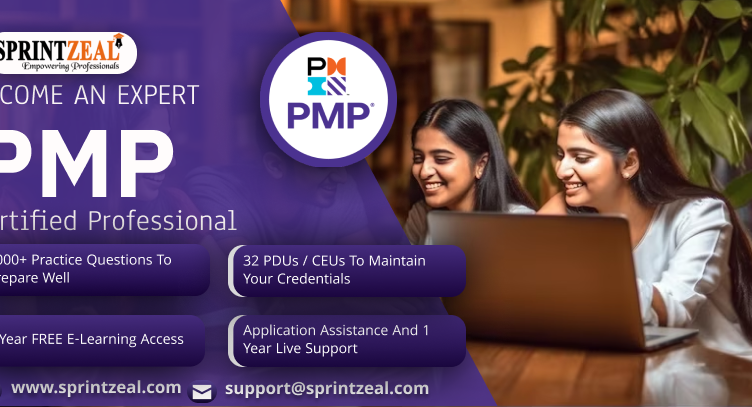Passing the Project Management Professional (PMP) exam is a significant milestone for any project manager. The PMP certification, administered by the Project Management Institute (PMI), is recognized globally and demonstrates that you have the experience, education, and competency to lead and direct projects. Here is a comprehensive guide on how I passed the PMP exam, along with lessons learned that can help you in your journey.
Understanding the PMP Exam
The PMP exam tests your knowledge and understanding of project management concepts as outlined in the PMI’s Project Management Body of Knowledge (PMBOK) Guide. The exam consists of 180 multiple-choice questions to be answered in 230 minutes. The questions are divided into three domains: People (42%), Process (50%), and Business Environment (8%).
Step 1: Eligibility and Application
Before you can take the PMP Certification exam, you must meet certain eligibility requirements. You need either:
- A four-year degree with 36 months of project management experience, and 35 hours of project management education/training or CAPM Certification, or
- A high school diploma or an associate degree with 60 months of project management experience, and 35 hours of project management education/training or CAPM Certification.
Gather all your project management experience and training documents and ensure you meet the requirements. The application process is straightforward but detailed. Be honest and accurate when documenting your experience, as PMI may audit your application.
Step 2: Study Materials and Resources
To prepare for the PMP exam, I utilized a variety of study materials and resources:
-
PMBOK Guide: This is the primary reference for the exam. I read through it thoroughly, making sure I understood each knowledge area and process group.
-
PMP Exam Prep Books: I found Rita Mulcahy’s PMP Exam Prep book particularly helpful. It provided practical insights and practice questions that mirrored the exam format.
-
Online Courses and Webinars: I enrolled in an online PMP prep course that offered video lectures, practice exams, and interactive sessions. Websites like LinkedIn Learning, Udemy, and Coursera have excellent PMP courses.
-
Practice Exams: Taking practice exams is crucial. They help you get familiar with the exam format and timing. I used online simulators like PMTraining and PMP Exam Simulator.
-
Study Groups and Forums: Joining a study group or online forum can provide support and additional resources. The PMP subreddit and PMI’s online community were invaluable for tips and encouragement.
Step 3: Creating a Study Plan
A well-structured study plan is essential for success. Here’s the study plan I followed:
-
Assessment: I started by taking a baseline practice test to identify my strengths and weaknesses.
-
Daily Study Routine: I dedicated 2-3 hours each day for studying. My routine included reading a chapter from the PMBOK Guide, reviewing notes, and taking practice quizzes.
-
Weekly Goals: I set weekly goals to cover specific topics and complete practice tests. This kept me on track and ensured I covered all the material.
-
Review Sessions: I scheduled regular review sessions to go over difficult concepts and revise important topics.
-
Mock Exams: I took full-length mock exams every weekend to build stamina and improve time management.
Step 4: Focus on Key Areas
The PMP exam covers a broad range of topics. Here are some key areas to focus on:
-
Integration Management: Understand how all the processes work together and the role of the project manager in integrating them.
-
Scope, Time, and Cost Management: These are critical areas. Ensure you know how to develop project plans, manage schedules, and control costs.
-
Risk Management: Be familiar with risk identification, analysis, and response planning.
-
Quality and Procurement Management: Know the processes for ensuring quality and managing procurements.
-
Stakeholder and Communication Management: Understand how to identify stakeholders and manage communications effectively.
-
Agile Practices: The PMP exam includes questions on Agile methodologies. Make sure you are familiar with Agile principles and practices.
Step 5: Exam Day Preparation
As the exam day approached, I focused on mental and physical preparation:
-
Rest and Relaxation: I ensured I got plenty of rest the night before the exam. A fresh mind is crucial for performing well.
-
Healthy Eating: I ate a balanced meal before the exam to maintain energy levels.
-
Arrive Early: I arrived at the test center early to avoid any last-minute stress. Ensure you have your identification and any required documents.
-
Mindfulness and Focus: I practiced mindfulness techniques to stay calm and focused during the exam.
Lessons Learned
-
Consistent Study Routine: Consistency is key. Stick to your study plan and avoid cramming.
-
Practice, Practice, Practice: Practice exams are essential. They help you understand the exam format, improve time management, and identify areas for improvement.
-
Understand, Don’t Memorize: Focus on understanding the concepts rather than rote memorization. The PMP exam tests your ability to apply knowledge, not just recall facts.
-
Use Multiple Resources: Don’t rely on a single study material. Use a variety of resources to get different perspectives and insights.
-
Join a Study Group: Study groups provide support, motivation, and additional resources. They also offer an opportunity to discuss and clarify doubts.
-
Take Care of Yourself: Mental and physical well-being are crucial. Take breaks, exercise, and maintain a healthy lifestyle during your preparation.
-
Stay Positive: Stay confident and positive. Believe in your preparation and abilities.
Conclusion
Passing the PMP exam requires dedication, hard work, and strategic planning. By following a structured study plan, utilizing multiple resources, and focusing on key areas, you can increase your chances of success. Remember to stay consistent, practice regularly, and take care of your well-being. With the right preparation and mindset, you can achieve the prestigious PMP certification and advance your career in project management. Good luck!

